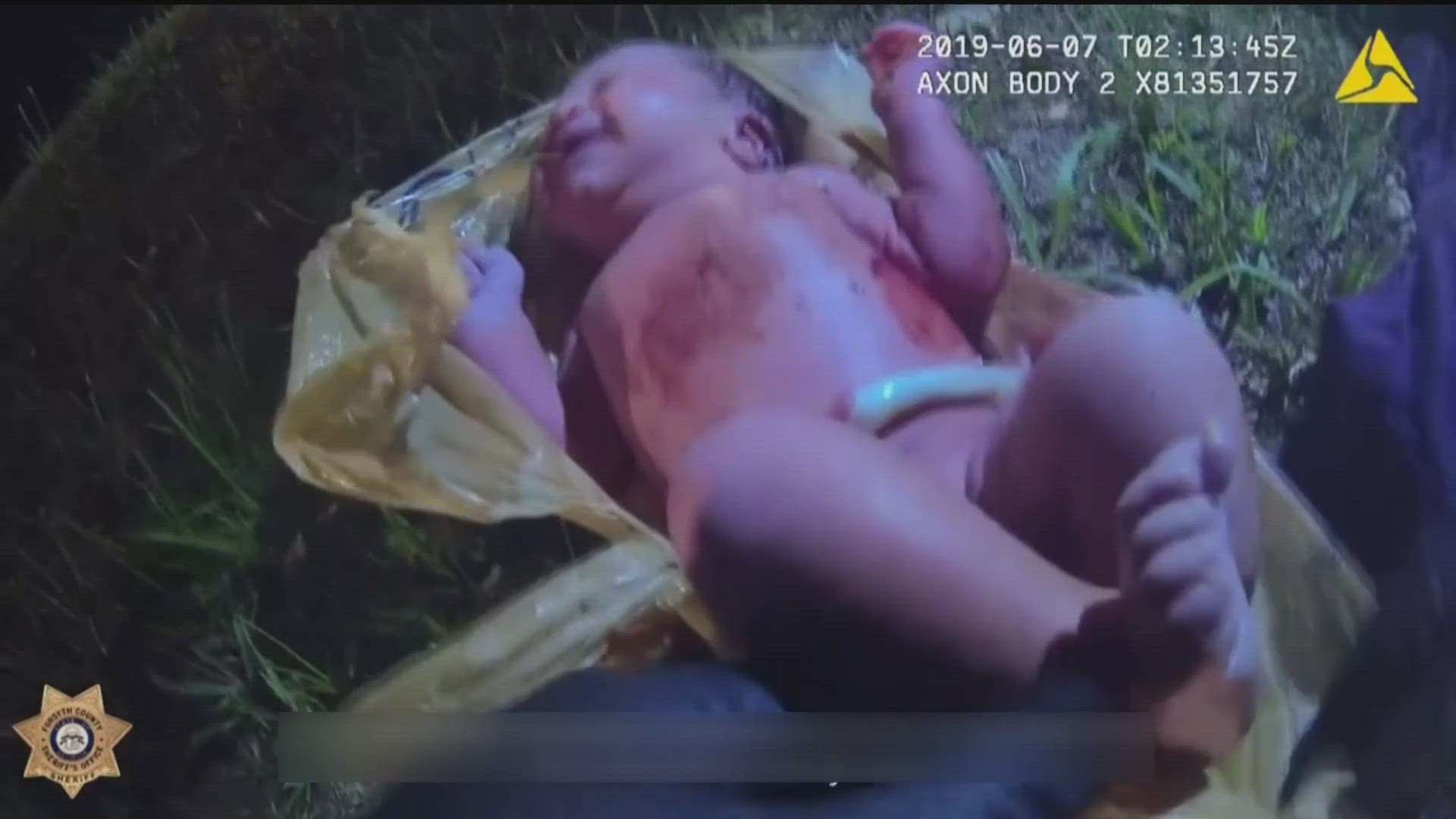In two decades, Georgia's 'Safe Haven' law has hardly been used
The first two years after the act passed showed the highest usage – in 2003 at nine babies given to safe places and in 2004 at 12.
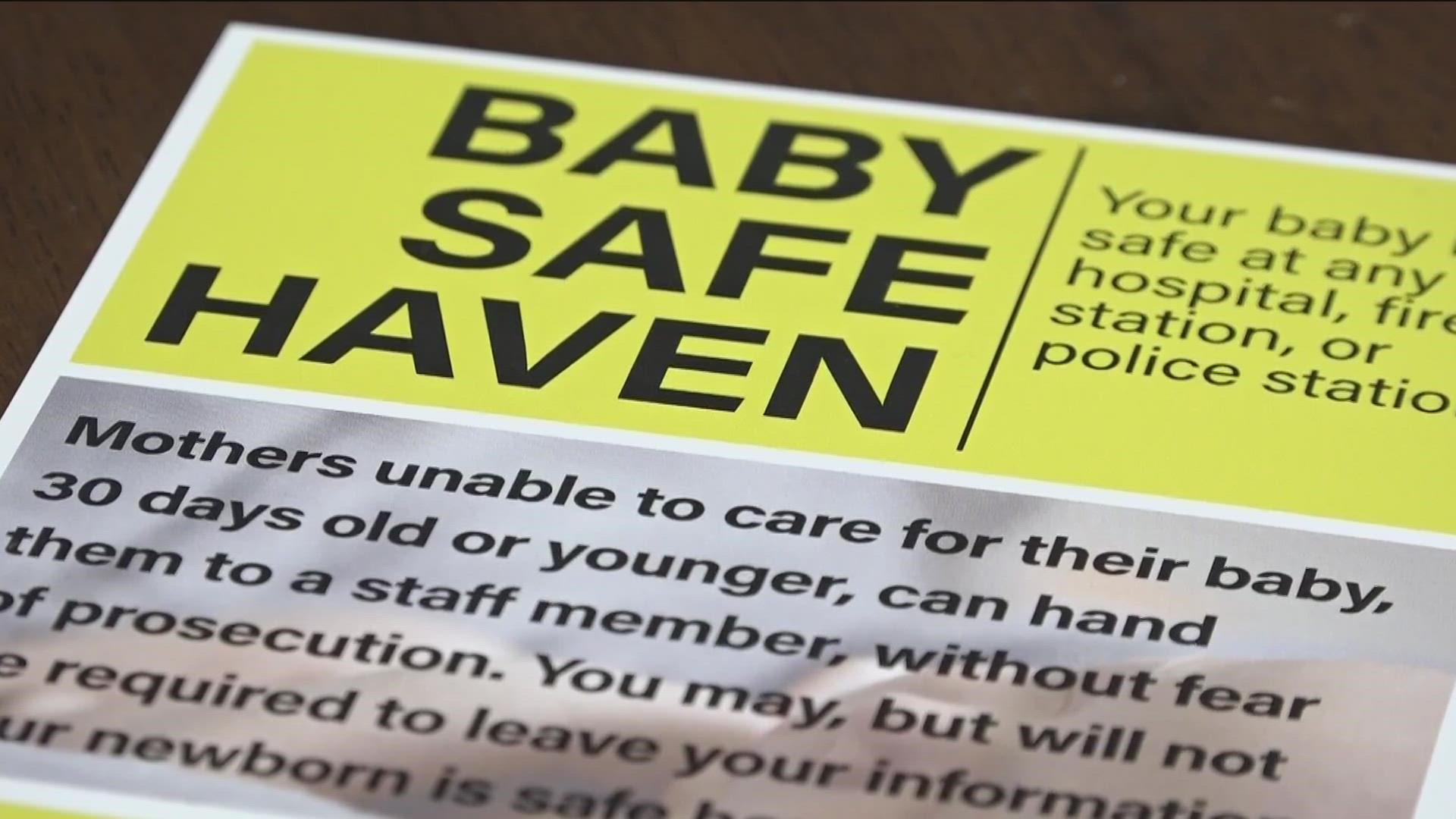
Cries rang out as a family was driving by Daves Creek Road on their way home, confused if they were hearing an animal or a child.
It was the summer of 2019, and at first, they didn’t know what was screaming for help off the side of the road. The family alerted 911 – feeling and fearing it was potentially a child.
“We don’t know if somebody is down there with it. We’re kind of scared,” the caller said to emergency services.
But they soon discovered the answer to the noise that haunted them.
“It’s in a bag. It’s in a bag. Hurry! Hurry!”
Law enforcement responded to the scene and found a child tied up in a plastic bag and thrown into the woods. The infant garnered national attention and is now known as “Baby India.”
Almost four years later, her biological mother, Karima Jiwani, was arrested and is now accused of criminal murder, cruelty to children in the first degree, aggravated assault and reckless abandonment.
As Jiwani's case moves through the justice system, her recent arrest is shining a light on infant relinquishment and how Georgia’s "Safe Haven" law isn't typically an option mothers turn to, according to the state's Department of Family and Children Services data.
Advocates say the current data doesn't paint an accurate narrative. This story explores why.
Origin of Safe Haven laws

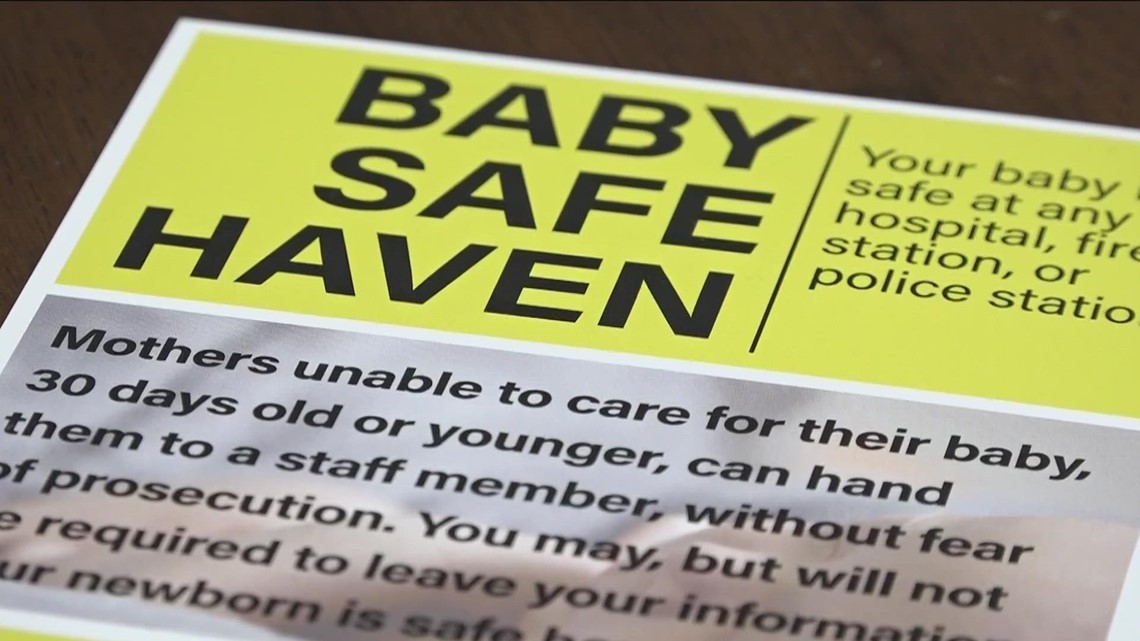
Georgia passed the Safe Place for Newborns Act, also known as the “Safe Haven” law, in 2002. In its original form, the law gave criminal immunity to a mother who would surrender her child within seven days of its birth. The law was revised in 2017, adding that a mother can leave a newborn no more than 30 days old with a staff member or volunteer of a medical facility, fire station or police station. It’s anonymous — the mother is not required to show proof of identity or address, according to the Georgia Department of Human Services.
“Safe Haven” or "Baby Moses Laws" are found nationwide, but the details vary from each state. The first act was passed in Texas in 1999 and was known as the Baby Moses Law, according to Executive Director for the National Safe Haven Alliance Heather Burner.
“What happened is that you had a group of folks; firefighters, nurses, paramedics, police officers, even journalists that were hearing and reporting on these stories of babies being found in the dumpster or in a field or on a curb,” Burner said. “And they were just devastated about it, so they started to kind of come together.”
It took around eight years for laws to pass across the country, she said. From that arose the National Safe Haven Alliance so that there would be an organization to support parents and providers.
How often is it used?

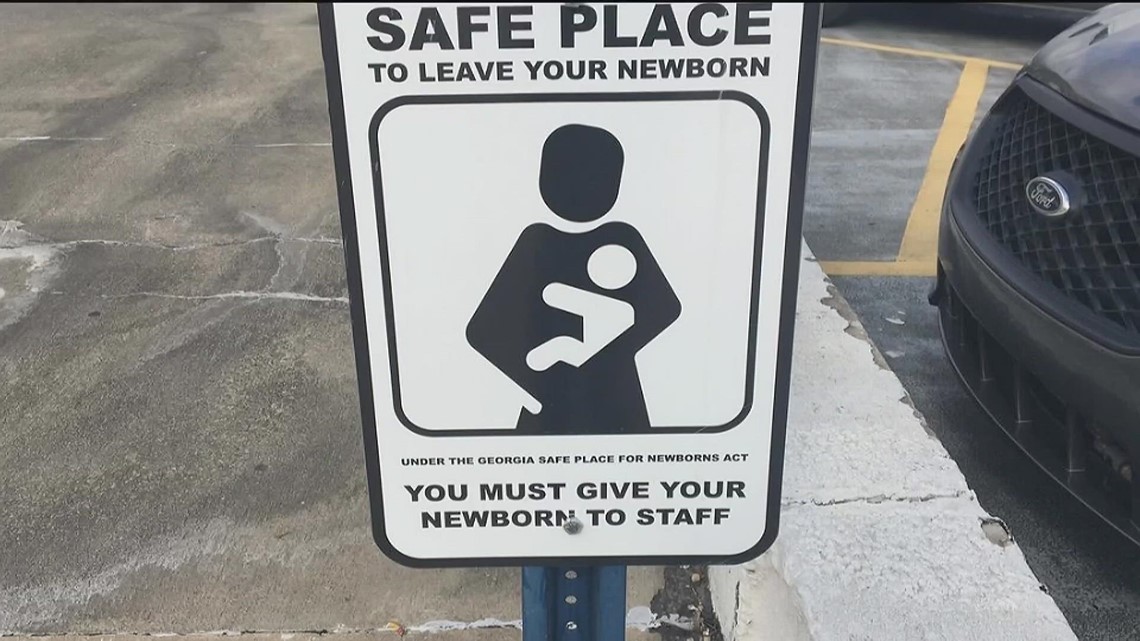
In the 20 years since Georgia's law went into effect, it has been used 78 times, according to data from the state’s Department of Human Services.
The first two years after the act passed showed the highest usage – in 2003 with nine babies given to safe places and in 2004 with 12. Data does not show the law used in 2015 and 2017. Last year, in 2022, nine babies were safely surrendered.
Burner wasn’t sure why some years in Georgia saw higher numbers than others.
“You have to wonder, did they do any type of marketing or push that information out in a way coming from the state, or did someone do some type of outreach so that it was able to reach those who needed it,” she questioned.
States typically see one to five "Safe Haven" surrenders in a year, Burner said. Based on the organization’s statistics from its national 2021 impact report, 4,505 babies were surrendered compared to 1,604 illegally abandoned since 1999. In 2021, 115 babies fell under the law and 33 were illegally left.
Smaller states like Rhode Island or Vermont typically see fewer surrenders than a state with a larger population, Burner said. This may have to do with the number of people or awareness within a community. It can be difficult to track the data because it’s anonymous and confidential.
However, Burner has noticed that areas with less outreach and education tend to have smaller numbers of babies safely relinquished.
The Hope Box, an organization that advocates for at-risk mothers and infants, often leads the charge in the utilization and education regarding child relinquishing and Georgia's Safe Haven law.
Emily Virkler, the director of operations for The Hope Box, added that Georgia is a special case.
"We have a very, very large state. We had 159 counties - 122 of them are designated as rural," she said. "We are the largest state, landmass wise east of the Mississippi, so we have a lot of areas to cover."
Barriers for safe relinquishing
A lot of ground to cover
Georgia's large size makes it more difficult to utilize the "Safe Haven" law, Virkler said.
Though mothers can safely surrender at a medical facility, fire station or police station, that landscape looks very different in rural Georgia, especially as the law mandates that the newborn be handed to a person.
"We have a lot of issues with fire stations and hospitals in rural areas," she said. "So 75% of all fire stations in the state of Georgia are 100% volunteer manned - which means they (firefighters) work regular jobs so they're not at the station, they arrive when there's a call."
Virkler said since a station may not be manned at all hours, a woman is least likely to use it as an option to turn over her child.
As for hospitals, several counties may share one facility meaning the drive could be half an hour away or longer. Relinquishing a child is already a tough decision to make, according to Virkler. So, when resources are not present or nearby, it can make it difficult to go through with the decision.
Other advocates like Heather Burner with the National Safe Haven Alliance said having more options is appreciated. However, the best practice is to go to a location that is staffed around-the-clock.
It's a tough choice
Though some may be quick to judge, Virkler encourages people to understand how mothers who may be considering surrendering a newborn may have a past none have experienced.
"Sometimes we're dealing with moms who are in trafficking or prostitution," she explained.
With The Hope Box, volunteers and staff work to educate others on how this support may impact a mother's decision and their reaction to help. The Hope Box often trains safe havens on how to accept a child, because it's not always as simple as a hand-off. It is not a state requirement to train employees of "Safe Haven" locations how to properly accept a child, according to Georgia's DHS.
"We talk to them a lot about trauma crisis response," Virkler said about the training. "You're dealing with someone who has compounded trauma and they just need assurances that maybe they can do this."
She adds that the training is meant to make choices easier on the mom and maybe even help her realize she has more options than she originally considered.
"Once we've explained her options to her of what is available out there for help," she said, "They've always either chosen to parent or we've connected them to adoption services."
Virkler said it's a testament that once they understand the scope of their choices, "Safe Haven" is no longer at the top of their list.
No blanket rule on relinquishment
However, the varied "Safe Haven" laws across the country don't help.
"It does get really hard because if a mom moves here from a different state she may have a different understanding of what the Safe Haven law is," Virkler said.
States alter on the timeframe given to relinquish a child and the places available. Ideally, for Burner with The National Safe Haven Alliance, the standard would be a 30-day age limit for every state.
Another layer to consider is how to communicate these differences and the options available to mothers.
"We have a very large immigration population here [in Georgia]. Clarkston is where a lot of our refugees go," Virkler said.
Hover over the state to learn about its "Safe Haven" or "Baby Moses" law. Graphic provided by The Hope Box.
Then there's the confusion of what a "Safe Haven" is. There are safe place laws for victims of human trafficking, runaways and domestic violence. Some cities have dedicated locations as safe havens for immigrants as well.
"We do have like YMCAs and QuikTrips and Walmarts as safe places - and those are triangular yellow signs," Virkler said.
But these are not "Safe Haven" spots.

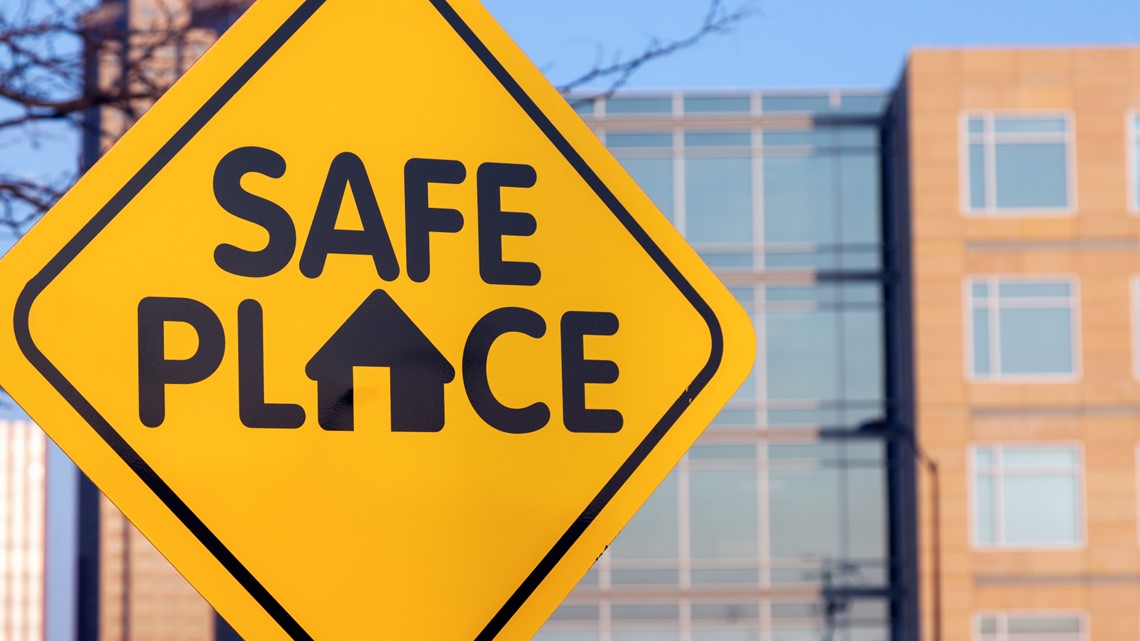
"They're going to hand their baby to a gas station attendant. That person did not get trained for that," Virkler said.
She added that this confusion can often compromise the safety of the child -- and eradicating any form of confusion and judgment could mean a healthy future for the newborn and the mother.
"There can be a language barrier, there could be just a cultural barrier or religious barrier," Virkler said. "There could be lots of different things that have to be treated with kindness and respect and just patience."
Expanding Safe Haven laws
Advocates agree that beyond awareness, expanding Georgia's "Safe Haven" law, and all laws nationwide, would make it easier to utilize the resource.
Virkler said a nationwide blanket rule would be helpful, but it's a struggle to make headway.
"We tried really hard back in 2018 to work on getting a uniform law because I saw the need for it," she said. "They were too concerned about fathers' rights to work on a federal baseline law."
When it comes to Georgia, Virkler said the state is on the brink of adjusting its "Safe Haven" law and could add another option for mothers. It would make Georgia the fifth state to expand its "Safe Haven" law in this way.
Arizona is one of the states that uses churches and although there is a concern of a lack of staffing overnight, advocates have worked to rectify this issue.
For instance, the National Safe Haven Alliance did training with a church that became a provider, Burner said. The organization also made sure there was a sign with a hotline number on it so that if someone did come at a time no one was there, someone could be sent or the person could be directed to the next closest place.
"One thing that we know that we have is a plethora of in the state of Georgia is churches," Virkler said. "It's still on the forefront of being a possibility for the 2024 session."
The issue didn't make it out of a Senate committee and was tabled, but if it were to become a reality, she said The Hope Box is willing to help them become Safe Haven-ready, if they choose to be a secure place where a mom could relinquish her child.
"We want that social safety net to be there for that mom and for that infant," she said.
Resources
Both The Hope Box and National Safe Haven Alliance have expressed that, when given the opportunity, mothers often choose another option than relinquishing their child after speaking with one of their advocates.
The National Safe Haven Alliance has a 24-hour hotline number for people to call when needed. Burner reiterated that every call does not necessarily lead to a “Safe Haven.” During that talk, they work to address what’s preventing someone from feeling like they can’t parent their child. From there, they connect and find resources for each person’s unique situation.
“We really want to make sure that we’re letting them know that they’re not alone – that they’re not walking through this by themselves,” Burner said. “It’s really important to listen to what they need and where they’re at and try to meet them there; not try to bring them to where you want them to be.”
In terms of the law, a lot can happen in over 20 years. Virkler believes with women's autonomy being challenged in the courts, more people may turn to a "Safe Haven."
"Since Roe v. Wade was overturned on the federal level and Georgia has such a strict heartbeat bill, I think we could see more of a spike," Virkler said of mothers surrendering their child via the "Safe Haven" law. "My hope is that we won't see more of a spike, that more communities will become more aware and more helpful."
Burner with the National Safe Haven Alliance believes it’s essential to ensure the law stays updated to meet the needs of the parents and to promote resources.
“It really comes down to are we creating enough awareness for people to know about the 'Safe Haven' law so that they do reach out for help,” she said. “So that when they find themselves in that critical, traumatic moment, there is some recollection that there is a safe option out there.”
Resources for mothers considering using a safe haven
National Safe Haven Alliance
- 24/7 Crisis hotline
- Call or text 1-888-510-2229 to be connected with an advocate that can talk to the process and share resources.
- Baby Shower Sprinkle Project
- An extra dose of love for a mother who has chose, in the midst of the most difficult circumstances, to parent their baby. The mother provides her mailing address and NSHA will send her "a baby shower in a box" with necessities for a newborn.
- How to help:
- Support the project by making a donation.
- Host a Baby Shower Sprinkle fundraiser to collect items for a new mom and help her get off to a great start feeling supported. Learn how here.
- Love Bundle
- This project is designed to provide encouragement and support to a mother in need who has chosen adoption or to relinquish their infant to a safe haven. The bundle includes items to help cope with her decision and process that it's the best decision for her.
- Here's how to help build a bundle and support the purchase of supplies.
- Baby Love Bags
- Infant care packages for Safe Haven providers that accept newborns.
- Make a donation to help fund supplies for the bags.
- Sign up to volunteer for the Baby Love Bags project
The Hope Box
- Hotline for help
- Pregnant mothers or those who find themselves in crisis can call 770-765-6301. It is open 24/7
- Safe Haven Rescue
- Advocates with The Hope Box can be notified if a child has been dropped off with the number above and ensure best practices and policies are being followed. This resource is for safe haven locations and for mothers seeking peace of mind (they can remain anonymous).
- Boarder or "Stuck" babies and its Hospital 2 Home Project
- This refers to babies medically cleared and ready to be discharged from the hospital but has nowhere to go due to a lack of care alternatives. The Hope Box will work with a caseworker at the hospital and refer them to a child placement agency of DFCS to connect the infant with a forever family.
- The Hope Box is not an adoption agency but rather the crisis response team.
- Children in trafficking
- The Hope Box can, and does, work alongside authorities to provide support for a child age three or younger in cases where a mother is a victim of sex trafficking.
- The organization works with local community partners to find resources to protect the child.
- Safe Haven training
- Advocates provide onsite and virtual training to police stations, fire stations, hospitals clinics and other organizations.
- Organizations and agencies can contact The Hope Box for the training.
Contact The Hope Box
People can contact its 24/7 hotline for emergencies or general inquiries at 770-765-6301. For more information, people can also contact info@thehopebox.org. Mailing information can be found below.
P.O. Box
3330 Cobb Parkway
Suite 324-180
Acworth, GA 30101

